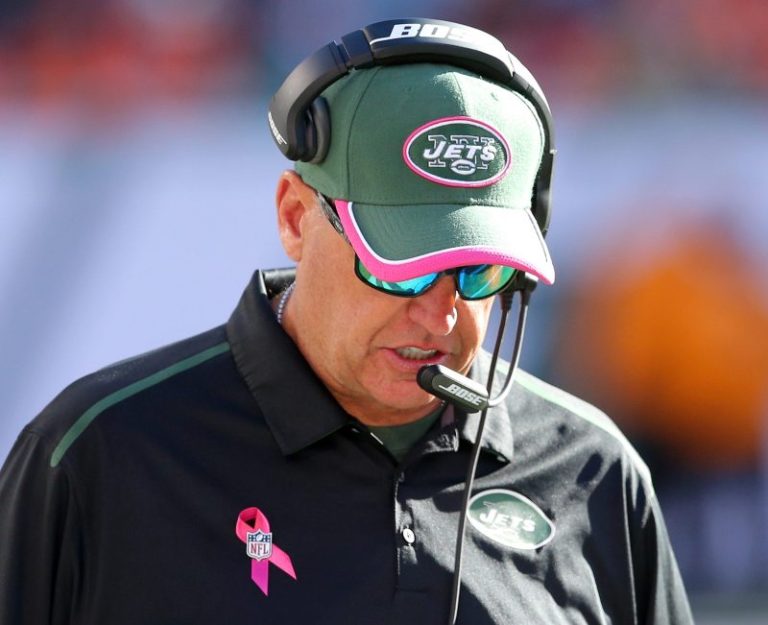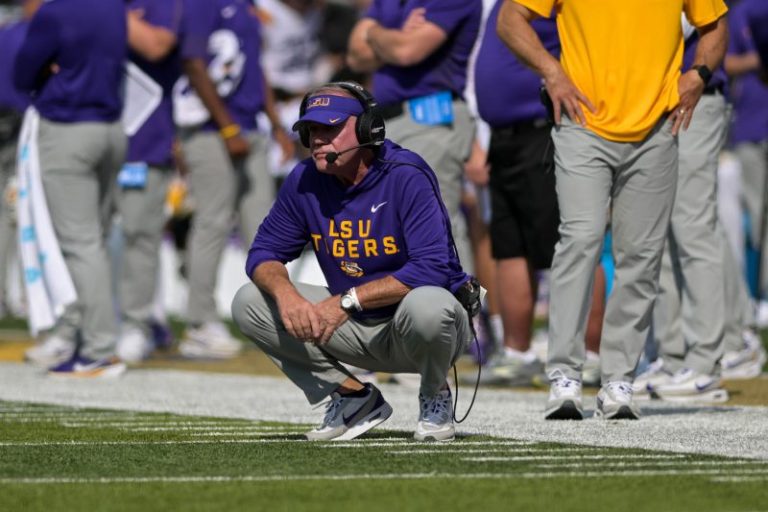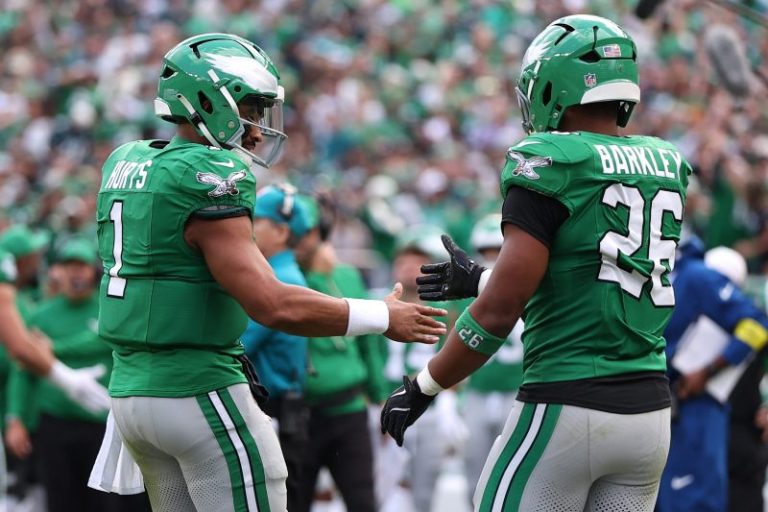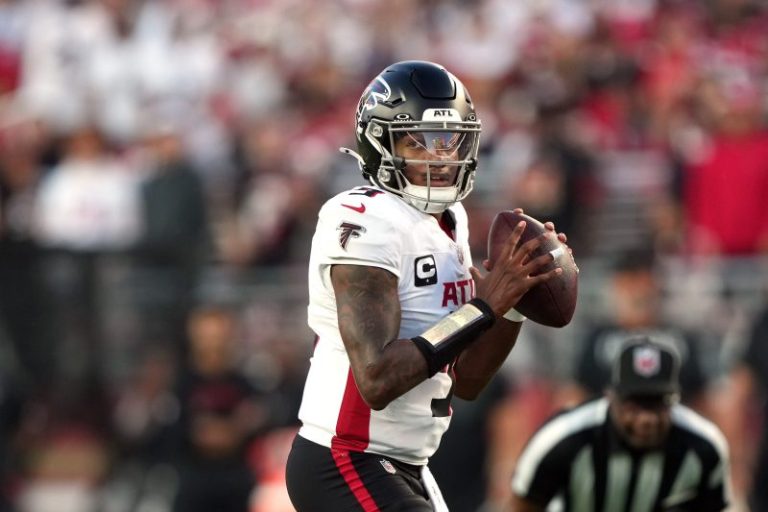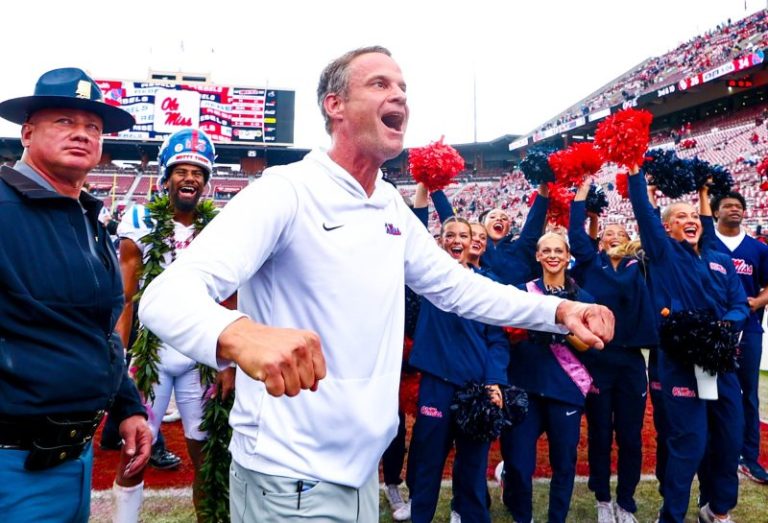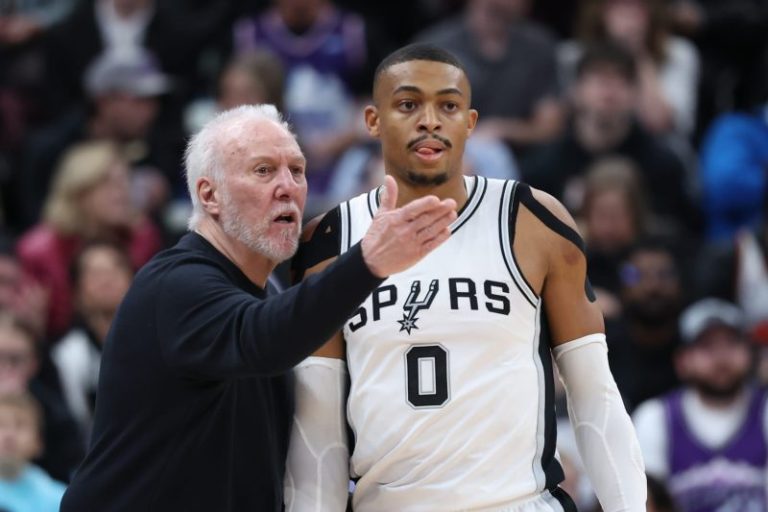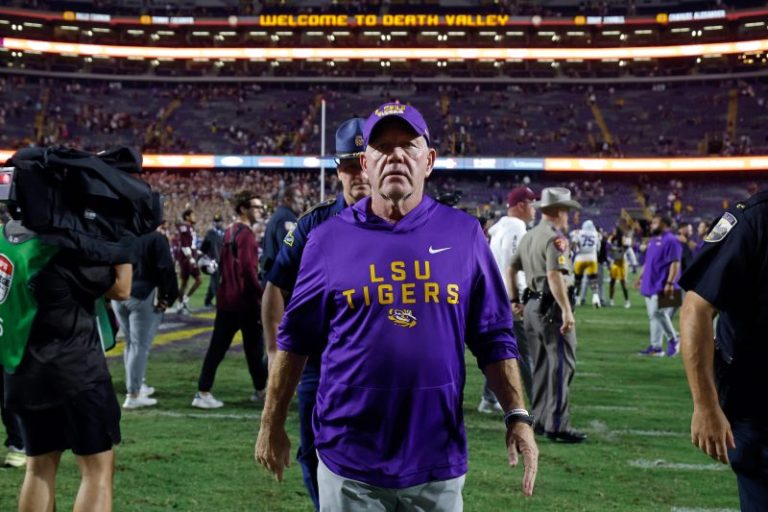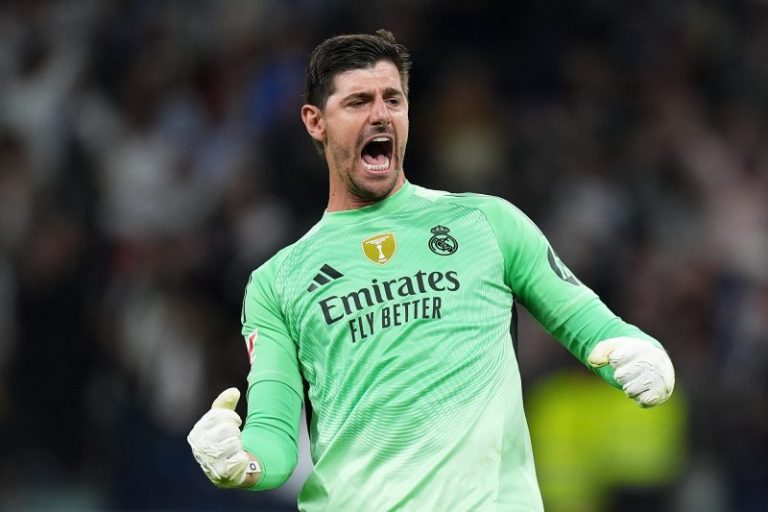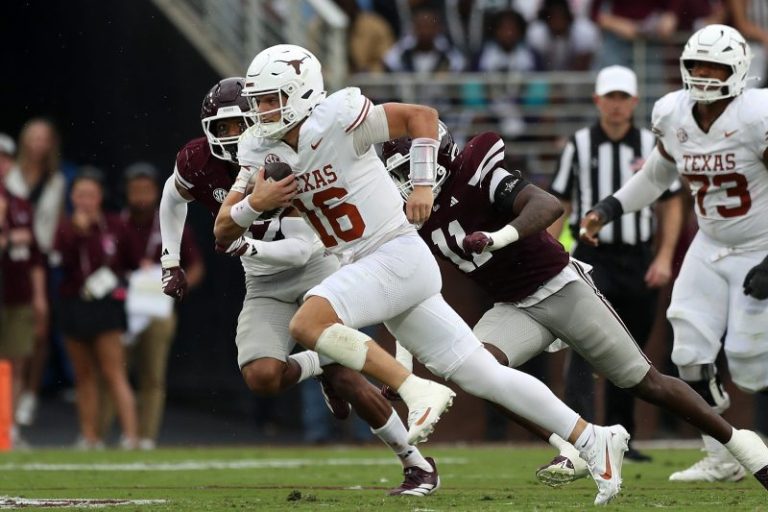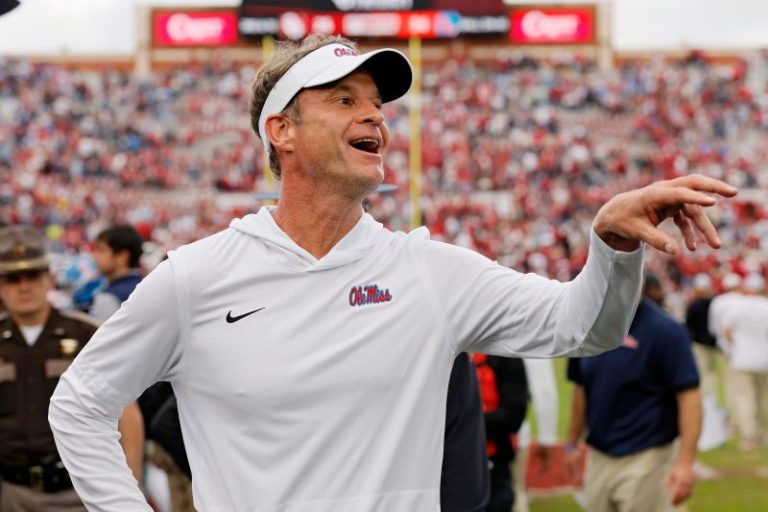Mississippi coach Lane Kiffin wasn’t phased by the noise in the Rebels’ big 34-26 road victory over Oklahoma.
North Carolina and Missouri both lost their games by a matter of inches on final plays.
Oregon and Miami showcased unique uniforms with varying degrees of reactions.
Even with all the noise surrounding Lane Kiffin, it’s not fazing him.
The Mississippi coach has been at the center of coaching rumors as it’s been speculated he’ll be persuaded to leave Oxford. Sooner fans sure had fun taunting him with a Gator chomp as Florida is rumored to heavily pursue him.
After hearing all the jabs, Kiffin dished it right back. He and Mississippi faced the music and walked out of Norman with a 34-26 win to move to 7-1 and keep those College Football Playoff hopes alive.
Not only did Kiffin get to shut up the Oklahoma fans, but also the Sooners themselves after this beauty of a postgame interview.
‘A little quieter now than before,’ Kiffin told an Oklahoma player. ‘This guy yelled at me during the game like five times how great they were and we can’t score on them.’
Kiffin couldn’t hide that smirk, knowing he’s on top of all the haters. He’s got the last laugh, and his swagger leads the best and worst things of Week 9 in college football.
Worst: Game of inches
Football is played on a 120-yard long field, but sometimes it comes down to inches. Unfortunately, North Carolina and Missouri were on the wrong end of it.
Bill Belichick’s team went for the win against Virginia in overtime, only for Benjamin Hall to get stopped right before the goal line.
For Missouri, a Hail Mary was answered when Matt Zollers found Kevin Coleman Jr. for a 36-yard catch. The only problem was the Tigers needed 37 yards to score a touchdown and send the game to overtime.
Two ‘what ifs’ that will haunt Missouri and North Carolina for a while.
Best: Oregon (Grateful) Ducks
It’s Grateful Dead weekend in Eugene with the ‘Grateful Ducks’ theme, and Oregon made sure to go all out with special uniforms and a fantastic entrance from The Duck.
Worst: Miami camo uniforms
Not only did it really blend onto the field at Hard Rock Stadium, but it was causing issues on the television broadcast with players appearing to be wearing green screen uniforms.
Great idea, bad execution.
Best: Wisconsin scores
Stop the presses. For the first time in three games, Wisconsin put up points, getting a fourth quarter touchdown in the 21-7 loss to Oregon.
It sounds silly, but it’s been hard to score for the Badgers. It hadn’t scored a point since the fourth quarter against Michigan on Oct. 4. Since then, Wisconsin gave up 92 consecutive points. It took 12 quarters for Wisconsin to score, or two hours and 54 minutes of game time.
For reference, you could nearly watch all three hours of ‘Oppenheimer’ in that same time.
Wisconsin did lose sixth consecutive game, but you got to celebrate the little things.
Worst: Iowa State’s punt mistake
One play can truly change an entire game. Iowa State found that out the hard way.
The Cyclones were going toe-to-toe with Brigham Young and were looking at good field position after forcing a punt late in the third quarter. However, it quickly went wrong when Iowa State’s Eli Green inadvertedly touched the rolling ball. The Cougars recovered in Iowa State territory in a sudden change of momentum.
How consequential was it? BYU scored a touchdown three plays later and shutout Iowa State the rest of the way for a 41-27 win to remain undefeated.
Best: Curt Cignetti lookalike
The Indiana coach has been the most famous man in Bloomington, so of course Hoosier fans can’t help but dress like their hero.
Worst: Kansas rivalry skid
Is it a rivalry if it’s one-sided?
That’s been the sory in the Sunflower Showdown, where Kansas State entered Saturday with 16 consecutive wins over rival Kansas. This year marked the best chance for the Jayhawks to break the streak, entering the 2025 matchup at home as favorites. After Kansas forced a fumble on the opening kickoff, it looked like a sign of fortunes changing.
It actually was far from good as the Wildcats put a 42-17 beatdown for their 17th consecutive win over Kansas. Who knows if Kansas will ever get the best of its rival again?
Just to show how bad the losing streak is, Kansas hasn’t won since Nov. 1, 2008, before Barack Obama was elected president and two years before the iPad came out.
Worst: San Diego State coach’s hat tan
Nothing beats the California sun, but San Diego State coach Sean Lewis’ head doesn’t get much of it. Turns out he’s sporting a hat quite frequently.
Best: Wake Forest wins on field goal from downtown
Something special may be brewing in Winston-Salem as Wake Forest beat Southern Methodist to move to 5-2. How did the Demon Deacons do it?
By kicker Connor Calvert barely getting over the crossbar on a 50-yard field goal, the longest Wake Forest made kick in the past decade.
Worst: fourth-and-17 fake field goal?
It’s been a season to forget for Nevada, but on Friday, Oct. 24, the 1-6 Wolfpack were hanging around with Boise State. Tied at three in the second quarter, Nevada had a chance to take the lead on a field goal after it was pushed to fourth-and-17.
Rather that kick it, the Wolfpack tried a fake field goal that went absolutely nowhere in a bizzare play call.
Nevada wouldn’t score again in a 24-3 loss to move to 1-7.
Best: A Greg Jennings-like TD
We all know the legendary Madden video game clip of Greg Jennings putting the team on his back, and we saw it happen in an actually game.
North Carolina State receiver Justin Joly was wide open when he hauled in a catch on a trick play ran by the Wolfpack. A touchdown was in sight, but with 25 yards left to go, he suddenly appeared to hurt his leg. Even though he was hampered, Joly put the team on his back and used everything we had to cross the goal line to complete the score, even if it meant being injured.
Even better, Jennings himself took notice of art imitating life.
Worst: QB catch failure
Quarterbacks have to think on the fly when a batted pass ends up in their hands. Do they catch and try to make it something? Or just bat it down to accept the lost play?
Unfortunately for Purdue’s Ryan Browne, he saw how bad these plays could be. He caught a batted pass, but his reception eventually turned into a fumble that fell into Rutgers’ hands with just over a minute to play.
Three plays later, the Scarlet Knights kicked the game-winning field goal and Purdue is now 2-6 with five losses in a row with the start Big Ten play.
Best: First win in 51 years
This year marked the first season for Division III New England College in 51 years with the Pilgrams returning to varsity status. So far, it hasn’t been a great first campaign with an 0-6 start that includes three shutout defeats and losing an average losing margin of 42.3 points.
But Saturday was a day the college has waited five decades for, as the Pilgrims beat Maine Maritime Academy 14-10 for their first win since the program’s revival. A glorious result as football comes back to New England College.
This post appeared first on USA TODAY

